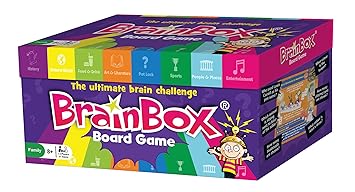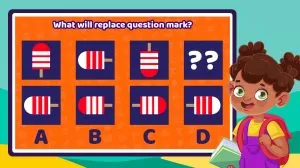All parents desire that their kids get the best possible privilege to have a good shot at opportunities in the course of their lives. One of the ways they seek to achieve this is by ensuring the child has a strong academic background and develops a sound memory. Parents desire that their kids get productively engaged after school hours or before they start schooling.
All types of sports have some benefits for kids and adults alike. Plus, in today’s day and age, more parents are interested in finding the right indoor games for kids.
But it is memory games that come in especially in helping kids’ physical and social development by building cognitive skills such as concentration, focus and attention span, which all contribute to boosting memory.
Most memory games operate on the principle of visualization i.e. ability to successfully attach words to familiar objects. They come in different forms ranging from games requiring no tool to digital games that can be played on devices. Memory games are also used in educational settings to enhance pneumonic and concentration skills.
This article presents the top ten memory games for kids and the benefits they stand to gain from playing them.
ANALOGUE MEMORY GAMES
1. HIDE AND SEEK
The hide and seek memory game differs from the conventional hide and seek game which involves two players hiding in an environment. The game involves multiple objects, which you show to a child, then hide these objects asking the child to seek to recollect the objects, which earned it the name “hide and seek”. The number of objects should depend on the child’s age; for a child 3-4 years, starting with 3-4 objects is fine, the number of objects can be increased as the child grows.

What is Needed?
- Multiple common household objects like spoons, plates, etc.
- A book and a pen
- Towel
How to Play
- Show the objects to a child for two minutes.
- Hide the objects with a towel.
- Ask the child to recall and write down the objects.
2. MISSING ITEMS
Missing Items is similar to hide and seek described above, it does not require any specialized board or item.
What is Needed
-
- Multiple common household objects like spoons, plates, etc.
- Towel
How to Play
- Show the objects to a child for two minutes.
- Hide the objects with a towel.
- Remove an object.
- Rearrange the objects.
- Ask the child to identify the missing object. 3. TRAVEL GUIDE
If your family likes to travel, you can decide to task your child with a memory game by making him a “travel guide”. During such journeys, you describe landmark places and events to the child. After describing a series of landmarks, you can ask your child to recall the landmarks so far.

4. BACKWARD SPELL
The backward spell is a game that requires children to recollect and spell backward a series of words they have seen from a board or screen.
How to Play
- Show the child a series of words on a screen or board for 30 seconds
- Ask the child to spell all the words from the screen 5. WORD CHAIN
 Word chain is a team game that involves a chain of similar words. This game will boost a child’s cognitive capacity and build the child’s social skills.
Word chain is a team game that involves a chain of similar words. This game will boost a child’s cognitive capacity and build the child’s social skills.
How to Play
A team member starts a sentence which other team members can continue with similar words, e.g. I have traveled to New York, the next child says, I have traveled to New York and Philadelphia, and the chain continues. This chain continues until a child breaks the chain by not finding the appropriate word.
6. BRAIN BOX GAMES
Brainbox is a series of board games that was first designed in 1991. It is especially suited for children; a British company creates it. There are different varieties available, including BrainBox Football, BrainBox Dinosaurs, BrainBox Roald Dahl, etc. You can check out the games available here.

DIGITAL MEMORY GAMES
In today’s digital world, app developers have also keyed in by developing memory games for kids. Several games can now be accessed by kids from their devices or those of their parents.
7. NACD COGNITION COACH
The cognition coach app was designed by the National Association of Child Development, and it was specifically for preschoolers between the ages of 3-5.
It has six levels of difficulties and features different categories: animals, houses, colors, letters, and numbers.
This app also provides children with hints and rewards them with sounds and animation on completion of a task. You can check out the game here.

8. MATH RACER
Math racer is a combination of learning and fun. It uses the child’s knowledge of math to race against a computer opponent.
The game’s objective is to ensure the child makes very few mistakes in completing this task and can apply knowledge of addition, subtraction, multiplication, and division while carrying out the task.
The game will also require that the child has good control of drift. There are varying levels of difficulty from 1st-5th grade. The game is available here.
![]()
9. MENTAL UP
Mental up is a memory game designed for children between the ages of 4-13. It is a result of a combination of efforts of academics and designers and seeks to use innovative means to ensure the overall mental development of children.
It has over 200 exercises that involve creative thinking, memory, attention, problem-solving skills, fitness, and health. The game aims to improve the overall cognitive development of children and can be accessed here.

10. WORDS MASTER
This app is suitable for children seven years and above. It makes children compete against themselves and get better than their previous scores on the app, thereby enabling them to compete healthily.
It tasks children to create as many words as possible from a given first letter and ranks them based on the number of words they can form.
You can download word master here.

WRAP-UP
Though scientific research on the efficacy of memory games on long-term memory is inconclusive, they help sharpen a child’s attention skills and short-term memory, thereby boosting their cognitive development and setting a good foundation for the skills they would learn in the future. Memory games are good for children living with cognitive impairment and those who do not have any impairment.
AUTHOR BIO
Owais Shah is passionate about sports like table tennis, darts, and badminton. And I love to write about them on my own blog and other blogs.

Get 4 Free Sample Chapters of the Key To Study Book
Get access to advanced training, and a selection of free apps to train your reading speed and visual memory

